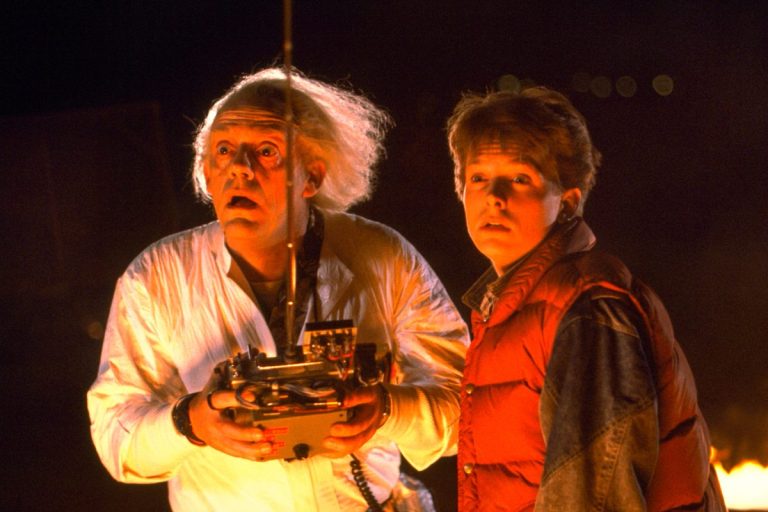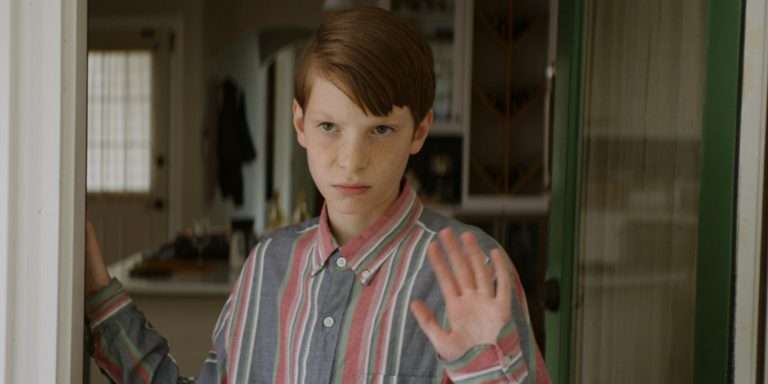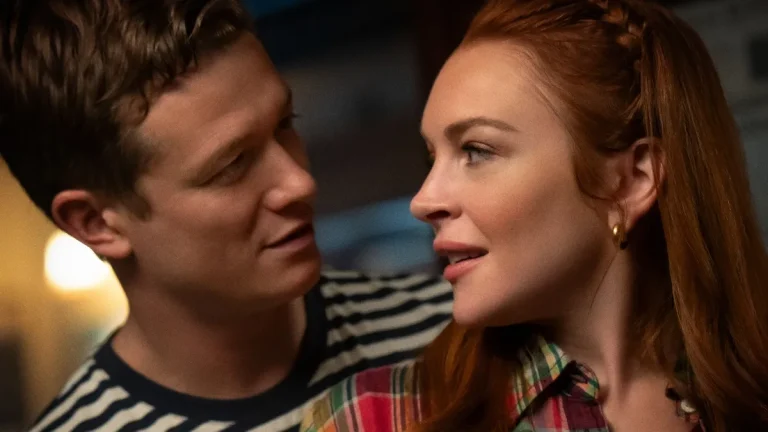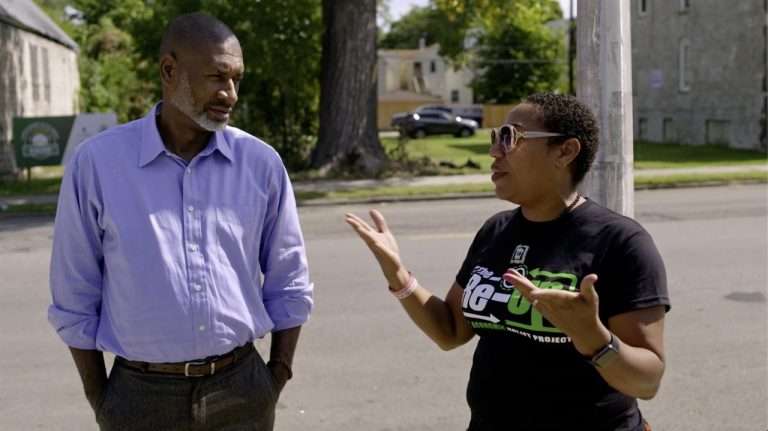The Patient (Season 1) Finale, Recap and Ending, Explained: “Anticlimactic” probably floats around in your head for a few minutes watching season 1’s finale. Episode 10 of The Patient brings the FX offering to a conclusive close. Creators have confirmed that we will not have a second season, and given how this episode ends, the possibility of that evaporates on its own. In this last episode, both Alan’s and Sam’s fates are decided. You also get a slew of epiphanies for the main characters and the realization that all life choices are not made equally or reasonably. There is the inevitable heartbreak we have all been preparing ourselves for. So, let’s dissect the ending and recap episode 10 of The Patient’s season 1. We have also put together our thoughts about the overall picture in the season review below.
The Patient (Season 1), Episode 10 (Finale)
The Cantor’s Husband Recap
As Sam’s truck departs the house to put into action his last words from episode 9, Alan is unsettled. He calls out to Candace, the silent mother who does not have the guts to stop her son from doing bad things. It is almost as if he has her blessing to continue with his murderous streak. Will it have another victim in the next few minutes? Alan tries to convince Candace that despite his brutal and harsh treatment, she will have some repercussions if she allows Sam to kill. The mother’s reaction is to our herself and Alan a cold glass of beer and wait out the uncertainty. Sam reaches his father’s house, who is a bulky fellow. But by the looks of it, he has probably wasted the chance in life to make his time worth anything.
He lives alone, so that will make the job easier for Sam. He invites Sam in and offers to make something for him. When they sit down, they share a quiet moment. The son finally conjures up the courage to ask the question he has been dying to ask all his life: why? Well, before he can get a complete answer out of him, Sam knocks him down from his chair and begins to strangle him. Something miraculous happens as he sees the life being drawn out of his father’s eyes. Sam stops. Wait, what? How could he do this? He has the neck of his worst enemy in life in his hands, and he is about to get revenge for years of abuse, torment, and wastage. And then he stops?
“Anticlimactic” suddenly starts appearing in all caps. What happened to cutting off his head and then defiling his skull, Sam? I guess it got “lost in translation.” Candace candidly admits to Alan that she is not a bad mother. Yes, she does condone all the things Sam ever wants to do. She does not protest, but that does not mean she feels happy or sadistically inclined about it. Like all mothers, she is scared and sad when Sam goes out like this, putting the victim’s and his life in jeopardy. A part of him dies with his victims as well, she purports. Candace feels sympathy for the family of Sam’s victims. But she will not phone the police, which bothers Alan. Or any sane person in his situation.
Alan offering a box of napkins to Candace is something we will see again. But not with this innocence or sense of care. Sam’s father said to him how Sam was a different kid who did not have any friends and had a hard time following the rules. In hindsight, he perhaps even felt bad doing all the things to Sam. It changed his life, too, like it did Sam’s. Alan is full of praise as Sam narrates the events. He is proud of himself, too, for making a difference in his patient’s life and perhaps nudging him in the right direction. So why didn’t Sam kill his father?
Alan explains this as Sam’s sub-conscience telling him not to become like his father. If he did, there would have been no difference in what he did to Sam and what Sam now did to him. Somehow, it would make him feel guilty about himself deep inside, and that hatred would only increase and eventually turn poisonous with time. Sam “not killing” his father when he had the chance is the defining step in this therapeutic process. This is where Alan’s job as a therapist ends, and so does Sam’s as a patient. He is finally free of all his weird and strange feelings. Sam even affords a smile on his face./ But when Alan says that it is time he was let go of, Sam feels confused.
The therapist cites his unfinished business with Ezra and wants the chance to repair the damage. It is like a reciprocating thing for his relationship with his son. Alan offers a schedule for Sam to keep visiting and keeping all of this under wraps. A permanent change in Sam has been brought that will ensure he keeps making progress in controlling his instincts and treating people better. We can see his visible discomfort in making this choice. But all of Alan’s hopes are shattered when Sam returns midday from work with a new sofa set, a refrigerator, and a television set as well, later for Alan. He feels the work is unfinished, and Alan needs to stay with him longer. He has the night to think it over.
Charlie and Alan have one final meeting together in Alan’s mind. His projections about Sam have turned out to be true, and he is finally empathetic toward his patient. Charlie explains Sam’s decision as natural. He sees Alan as a father figure and wants to do the father-son thing all over again. He seeks redemption in a relationship that he could never find. But Alan does not want to stay. At night, he writes something on the notepad. He spends a lot of time on it—a damning precursor of things to come.
He calls out to Sam after finishing the letter. Alan comes clean to Sam about what he said yesterday. He still wanted to get out, although he genuinely felt a significant change in Sam. To woo Sam and soften the blow, he lied about how Sam could indeed get better without him as well. Not when he tells the truth, the therapist says that Sam will need to have some physical boundations to stop him from committing the same mistakes. Alan cannot do it anymore; in his professional opinion, physical restraints are necessary. That alone can give him the freedom and space to heal from the trauma. Sam now has two choices: either call the police and turn himself in or kill Alan and be done with it because the therapist has had enough and cannot stay like a pet any longer.
He sits outside the police station and thinks hard about doing the former. But he inevitably returns, having failed to bring himself to do that. Candace goes down with lunch and beseeches Alan to continue. She says Sam is not ready yet, and Alan must give him more time. Alan says the truth to her as well. She failed to protect her son, and that is solely on her. As she begins sobbing, Alan offers the napkins to her. But this time, he takes her in his arms and holds the sharpened foot cream to her neck. He shouts to call Sam into the room and compels him to call.
We suddenly cut to Alan sitting in the living room of Ezra’s house and one of his sons asking Alamn about “his time away.” So, Alan did manage to escape, it seems. He joins the table for a family dinner. It is Sabbath night, and they chant Hebrew songs together at the table. Everyone is there, sans Beth. But as Alan sees a familiar face, we begin to quiver. It is Charlie. Alan never did escape.
The Patient (Season 1), Episode 10 (Finale) Ending, Explained:
What happens to Alan in the end?
In the next scene, we see Sam on top of Alan, choking the life out of him. Candace wails on the side, unable to comprehend what has happened. She defeatedly resigns to the floor as Sam finally unchains Alan and takes him to the other room, where he dug a grave for Elias. Sam discovers the note Alan left, and it was for his children. He was anticipating something like this would happen. Against our expectations, Sam posts the notes with a typed letter from his side to Shoshanna. She discovers it, and Sam’s typed note confirms that Alan is dead. He also has left directions to find his body, something he didn’t do for Elias.
Alan has nothing but praise and love for his children. He writes that he admires them both immensely and is happy they have found a beautiful family of their own. He also asks for Ezra’s forgiveness for projecting his judgment and hatred through Beth on him. Ezra and Shoshanna plunge into each other’s arms as they cry and grieve their father’s loss. It is indeed a tender, emotional moment that disarms you completely. Sam comes back to the empty basement and imagines Alan sitting in his chair. He replays their last conversation when Alan truly speaks his mind without fear. With reluctance and pain, he puts on the chains and perhaps concludes that Alan was probably right. He does need to have that physical restraint to control his compulsions.
He puts on the chain and hands over the keys to Candace. A happy ending for him, at least, and maybe also for Alan altruistically, as his mission with his patient was successful. His death was not in vain, however vain that statement might be. Sam and Candace hold hands, and this time, Candace decides to protect his son. She will do everything to ensure he gets better. Ezra is now in therapy, something he hitherto did not believe in. The therapist is an old colleague of Alan’s. Ezra confides that he never read his father’s book. He begins the session, and the screen cuts to black.
The creators’ words here must be put into perspective to contextualize that ending. The show is intense, dark, and painful, and then it lightens up. It’s not that it’s not intense too, but you get a little break from your own suffering as a viewer. It came out for something particular, which was that you could only guess what Alan was thinking. At first, that seemed like a virtue. But then, it reached a point where the different possibilities of what he might be thinking were too confusing, and it became hard to track the story. It was only when he clearly saw the light and that he needed to take a definitive step that he came clean with the truth. The many facets of Sam’s life came undone in the finale. Candace forever remained an enigma for all of Alan and us as well.
But Candace also was a big reason why Alan said Sam needed some physical barrier to bound him. She allows everything. She is a pushover and indirectly facilitates the killing by not intervening as she should. It seems as though, after everything that’s happened and after taking Alan’s life, Sam may feel some guilt or at least some regret for what he did. He seems to understand that maybe Dr. Strauss was right, at least finally, and he’s not going to stop unless he’s actually physically stopped. Did you think at all about what happens after that? Is chaining himself up and giving his mother the key really the effective answer?
The Patient (Season 1), Review
One brilliant thing about the finale was its ending and Alan’s admission that he wasn’t being truthful to himself and Sam. All he thought of was escaping and making amends with his own son. Once it dawned on him that it would not be possible, he came out with the truth. And the show ended in a very realistic manner that does justice to the buildup and the characters. Any ending where Alan escaped felt not true. Television sometimes tries to pull a happy ending out of something that wouldn’t happen in the real world. Humanizing the serial killer for the audience, something like Netflix’s You did in the first half, was followed by a turn to shape the narrative as the story of someone who is coming to grips with the fact that he might not survive. The finale delivers on that setup quite brutally. Anything else would feel like a cheat.
The finale came to life with a sense of dread, with small glimmers of hope sprinkled on top as a red herring for the viewers. The Patient was never going to have the kind of finale where the serial killer learns his lesson and sends the helpful therapist on his way. And, if that did happen, it’s unlikely that Alan would accept keeping Sam’s secrets for long. The question that is left for the audience is, perhaps, whether those last moments needed to be so unflinching in their depiction of emotional and physical brutality. But that question speaks to the compelling narrative that was crafted — a narrative that would always end in tragedy.
As with all of our lives, we have one path through our lives, and that’s the path through which we will or won’t find peace or reconciliation. In this story, he was able to. You can say that it’s dark, but it’s also a beautiful thing.








